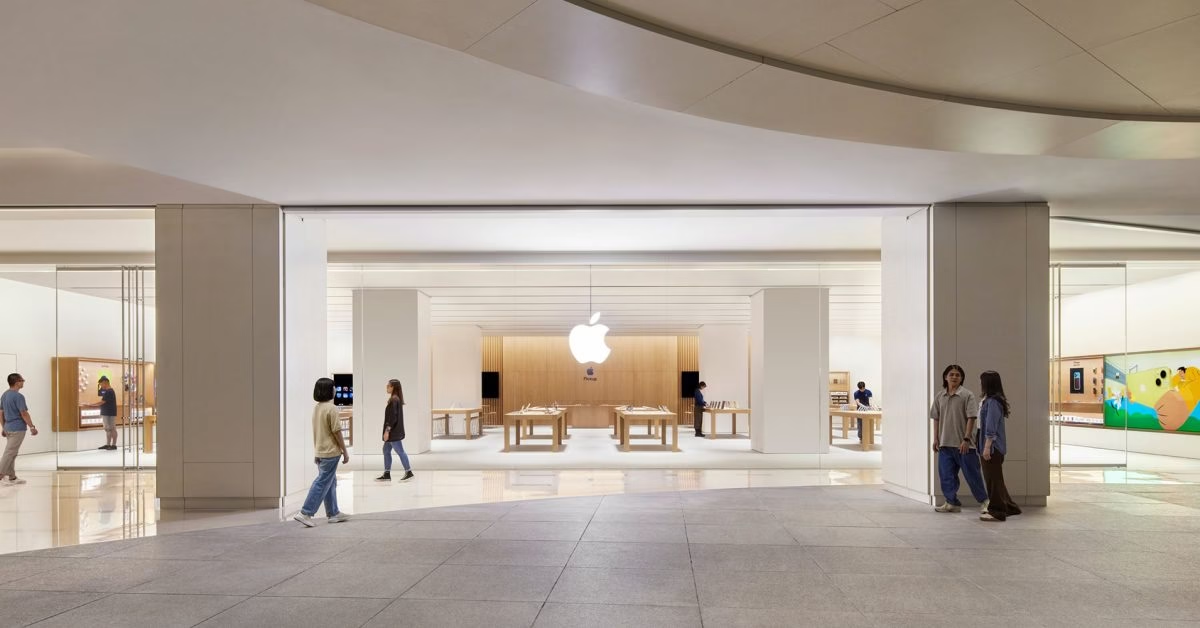The Trump administration yesterday announced punishing import tariffs on a long list of countries, including all of Apple’s key manufacturing hubs. It’s been estimated that this would force the company to either increase US prices by 40% or see its profit slashed by 32%.
The news saw stock market slumps around the world, with AAPL stock falling more than 7% in pre-market trading on fears of the impact …
Trump’s tariffs
Tariffs are import taxes paid by US consumers and companies at the port of entry. Trump announced a minimum tariff of 10% on all global imports, but far higher ones on many countries. These include the countries responsible for almost all Apple production:
- China: 34%
- India: 26%
- Thailand: 36%
- Vietnam: 46%
These tariffs would result in Apple paying around a third more on most of the products it sells in the US, forcing it to choose between a massive hit to its profit margins or a huge price increase for consumers. Either way, the impact on the company would be unimaginably bad.
If Apple absorbed these costs, it’s been estimated that it would see around a 32% cut in both profit and earnings per share (EPS).
In the other hand, passing on the cost to customers would massively dent sales. For example, if Apple were to pass on the full tariff on a base-model iPhone 16 Pro assembled in China, the price to a US consumer would increase from $999 to $1,338. Similar increases would apply across all Apple products.
Three reasons to expect Apple exemptions
There are, however, three reasons to suspect that neither Apple nor its customers will end up paying the tariffs.
First, some suggest that Trump is using the unfeasibly large numbers as a negotiating tactic, hoping to extract concessions from the hardest-hit countries in return for not enforcing them. The tight timings would make this a dangerous game of brinkmanship, and the reaction of governments around the world make it a very tough sell, but it would at least provide a potential rationale for the move.
Second, precedent. Trump implemented a less extreme version of this move in his first term, announcing a 10% tariff on a vast range of products imported from China. If Apple had passed on the cost to consumers in the form of higher prices, it was expected to reduce demand for iPhones by 6-8M a year. If it instead absorbed the increase, it would have cut the company’s earnings by around 4%. Instead, however, Apple succeeded in extracting exemptions for almost of its products.
Third, and most persuasively of all, the sheer unimaginable impact of allowing the announced tariffs to stand. With a single stroke of his pen, Trump would have financially devastated one of the most successful companies in America’s history and/or inflicted extreme financial pain on its US customers.
Admittedly Trump still doesn’t seem to understand what tariffs are and how they work, but he has advisors who do. Tim Cook and other CEOs of American companies will also be working overtime in their own efforts to educate him. Between them, they are likely to succeed.
The most likely outcome is that a face-saving way will be found for Apple and other US giants whose products are made overseas to be exempted from the full impact of the tariffs.
Photo: Apple
FTC: We use income earning auto affiliate links. More.


